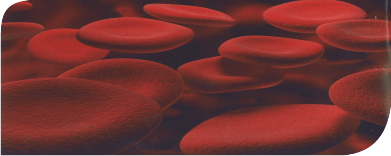Infertility
KARYOTYPE AND FISH-INFERTILITY
Biohellenika offers a complete testing program related to prenatal and postnatal control as well as tests related to infertility. These tests include karyotype and FISH to detect abnormalities of the chromosomes and tests for cistic fibrosis, thrombofilia, viral, parasitic and bacterial infections. The samples testes are: amniotic fluid, chorionic villi, material of miscarriages, fetal blood and peripheral blood.
Indications of prenatal screening include:
- Maternal age >35
- Ultrasound fetal abnormalities (eg indications for Down Syndrome)
- Increased risk of abnormalities portrayed in the biochemical control of the 1rst and second trimester.
- Parents who are carriers of chromosomal abnormalities
- Previous birth of a child with chromosomal abnormality
- Intrauterine death
- Determination of the sex in sex-linked diseases
- Spontaneous miscarriage
- Increased anxiety of the mother
Indications of postnatal control include:
- Infertility
- Recurrent miscarriages
- Medical history of intrauterine death or of previous child with birth defects.
- Apparent/visible congenital abnormalities
- Absence or delay of the development of the characteristics of the sex.
- Primary amenorrhea
The examinations of infertility include:
- FV-Leiden, F 2 (prothrombin), homocystinemia (MTHFR)
- Viral infections (herpes simplex, cytomegalovirus)
- Chlamydia, mycoplasma, naiseries
- Toxoplasma, B-streptococcus
The laboratories of biohellenika are accredited by ESYD (National Accreditation System). All tests are performed by qualified molecular biologists and evaluated by physicians specialized in Genetic Centers abroad with which they maintain partnerships. Apart from the tests mentioned above, other more specific tests can be conducted upon request. The information provided is valuable for the prognosis of the person with the abnormality, its relatives, future pregnancies and future generations.

Infertility tests
Biohellenika has built an up-to-date molecular analysis laboratory, which is capable of testing man and woman infertility. In our laboratory, microbial agents related to genital infections, such as Chlamydia, Toxoplasma, Ureoplasma and other microbes as well as viruses such as HPV, are being analyzed. These tests are conducted with the method of Real Time PCR (RT-PCR) and detect the very own DNA of the pathogens, which means their presence in the genital system at the moment of sampling. RT-PCR is a more reliable method, compared to antibody detection, which in some viral infections may take months. Hence false negative results are avoided and treatment as well as suitability of the medicine can be evaluated.

Thrombophilia tests
In cases of repeated miscarriages, pathologic genes responsible for blood coagulation may be triggered and therefore should be tested. These tests are very important, because they protect the mother from thrombotic cases during pregnancy, labor or even later.

Cardiovascular diseases tests
Patients with family history of heart attacks in early age are tested for carrying pathologic genes, associated with cholesterol metabolism and lipids in general, as well as for factors that may cause cardiovascular diseases. The “gene profile” of these patients can provide them with important information about their future. This information in combination with appropriate instructions and medical treatment can result in avoidance of life threatening cases.
So, Biohellenika offers the possibility of detecting the predisposition for cardiovascular diseases, which include a series of complicated damages not only in the heart, but also in the vessels. Such diseases are the major death cause in the advanced countries. Nowadays, the genetic factors that partake in thrombosis and arterial pressure rise mechanisms are known. Some of the diseases associated with pathologic genes are the following:
|
Diseases |
|
Severe vascular thrombosis |
|
Coronary disease |
|
Acute heart attack |
|
Hypertension |
|
Hereditary thrombophilia |
|
Thromboembolic disease |
|
Increased cholesterol levels in plasma |

